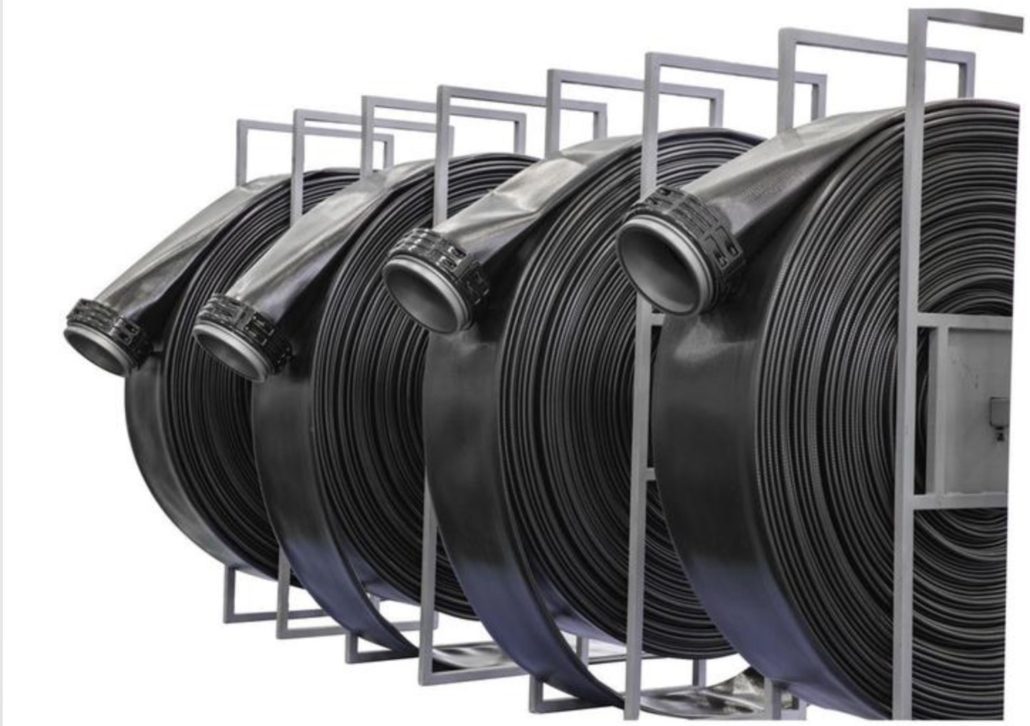TPU Hose: A Versatile Solution for Fluid Transfer Applications
In the world of industrial and commercial applications, finding the right tools for fluid transfer is paramount. One of the standout innovations in this field is the TPU hose, a versatile and reliable solution that has gained significant popularity due to its unique properties and adaptability. In this article, we will delve deep into the world of TPU hoses, exploring their composition, benefits, applications, and maintenance. If you’re looking to enhance your understanding of fluid transfer systems, you’re in the right place.
Contents
- Introduction to TPU Hose
- Composition and Structure
- Advantages of TPU Hoses
- Wide-ranging Applications
- Key Considerations for Selection
- Proper Installation Techniques
- Maintenance and Longevity
- Addressing Common Misconceptions
- TPU vs. Other Hose Materials: A Comparison
- Sustainability and Environmental Impact
- Innovations and Future Trends
- Ensuring Safety and Compliance
- Industry Case Studies
- Expert Recommendations
- Conclusion
Introduction to TPU Hose
TPU stands for Thermoplastic Polyurethane, a versatile polymer known for its exceptional properties. TPU hoses are crafted from this material and have become a staple in various industries due to their outstanding durability, flexibility, and chemical resistance. These hoses are specifically designed for fluid transfer, making them a vital component in processes ranging from manufacturing to agriculture.

TPU layflat hose
Composition and Structure
TPU hoses are a result of advanced polymer technology. They are typically composed of a thermoplastic polyurethane material, which imparts both elasticity and robustness to the hoses. The inner layer of the hose is ultra-smooth, allowing efficient fluid flow, while the outer layer is designed to withstand abrasions, chemicals, and environmental factors.
Advantages of TPU Hoses
The use of TPU hoses brings forth a multitude of benefits. Their notable features include:
- Flexibility: TPU hoses are highly flexible, even in low temperatures, ensuring easy handling and installation.
- Chemical Resistance: These hoses display exceptional resistance to a wide range of chemicals, ensuring the integrity of the fluid being transferred.
- Durability: TPU’s inherent robustness makes the hoses durable, reducing the risk of punctures and leaks.
- UV Resistance: TPU hoses can withstand UV radiation, making them suitable for outdoor applications.
- Versatility: They can handle a diverse array of fluids, including water, oils, chemicals, and more.
Wide-ranging Applications
The versatility of TPU hoses translates into their use across various industries:
- Manufacturing: TPU hoses are integral for the transfer of chemicals and fluids during the manufacturing process.
- Agriculture: They are used in irrigation systems, fertilization processes, and the transfer of pesticides.
- Construction: TPU hoses facilitate the pumping of concrete, cement, and other construction materials.
- Oil and Gas: These hoses handle the transfer of oil products with ease, even in demanding offshore environments.
Key Considerations for Selection
When choosing a TPU hose, several factors come into play:
- Fluid Compatibility: Ensure the hose is compatible with the fluid being transferred to avoid degradation.
- Pressure Rating: Select a hose with a pressure rating that exceeds the application’s requirements.
- Temperature Range: Consider the temperature extremes the hose will face and choose accordingly.
Proper Installation Techniques
Correct installation enhances the performance and lifespan of TPU hoses:
- Avoid Twisting: Improper twisting can lead to kinks, reducing fluid flow.
- Secure Connections: Ensure proper connections to prevent leaks.
Maintenance and Longevity
Maintaining TPU hoses is relatively straightforward:
- Regular Inspection: Check for signs of wear, tear, or damage.
- Cleaning: Flush the hose after each use to prevent residue buildup.
Addressing Common Misconceptions
Despite their advantages, some misconceptions about TPU hoses exist:
- Not Suitable for High Temperatures: TPU hoses can handle a wide temperature range effectively.
- Prone to Kinking: Proper handling and installation prevent kinking.
TPU vs. Other Hose Materials: A Comparison
Comparing TPU hoses with other materials like PVC and rubber reveals TPU’s superiority in terms of durability, flexibility, and chemical resistance.
Sustainability and Environmental Impact
TPU hoses are eco-friendly due to their long lifespan and potential for recycling.
Innovations and Future Trends
Advancements continue to enhance TPU hoses, including improved flexibility and specialized applications.
Ensuring Safety and Compliance
TPU hoses must meet industry standards to ensure safety and reliability.
Industry Case Studies
Real-world examples showcase TPU hoses’ effectiveness in various applications.
Expert Recommendations
Experts emphasize proper maintenance and selection for optimal TPU hose performance.
Conclusion
In the realm of fluid transfer, TPU hoses stand out as a versatile, durable, and efficient solution. Their unique properties make them indispensable across industries, from manufacturing to agriculture and beyond. By understanding the composition, benefits, applications, and maintenance of TPU hoses, you’re equipped to make informed decisions that enhance your fluid transfer processes.
Frequently Asked Questions:
- Are TPU hoses suitable for food-grade applications? TPU hoses can indeed be manufactured to meet food-grade standards, making them suitable for food and beverage industries.
- Can TPU hoses handle abrasive materials? Yes, TPU hoses are designed to withstand abrasion and can handle abrasive materials in various applications.
- Do TPU hoses require specialized fittings? TPU hoses can work with standard fittings, but for specific applications, specialized fittings might be recommended.
- What is the shelf life of TPU hoses? With proper maintenance and storage, TPU hoses can have a relatively long shelf life, often several years.
- Can TPU hoses replace metal hoses in industrial applications? In many cases, TPU hoses can offer a lightweight and flexible alternative to traditional metal hoses, but suitability depends on the specific application’s requirements.

 sunhose
sunhose sunhose
sunhose